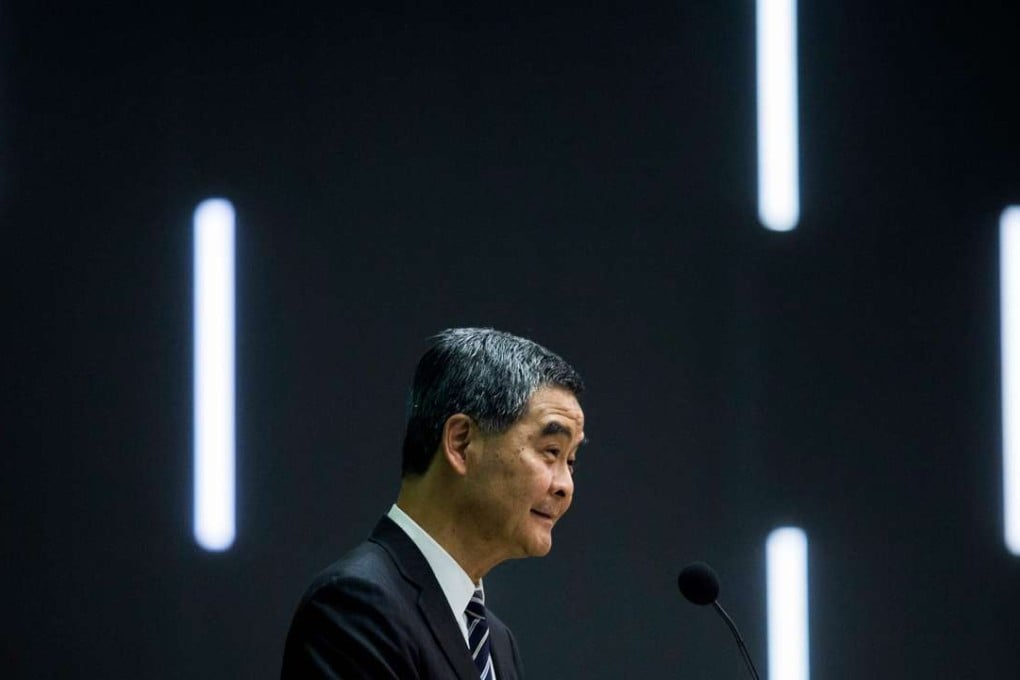Advertisement
By dividing Hong Kong, Leung proves to be anything but the unifying figure he promised to be
Alice Wu says despite his recent declaration that he has fulfilled his campaign promises, the city’s outgoing chief executive has shown himself to be a divider with little tolerance for other views
Reading Time:3 minutes
Why you can trust SCMP

You don’t have to be an ABC (Anyone But CY; in other words, a Leung Chun-ying hater) to take note of the strange way the chief executive ended his final policy address: “All commitments in my election manifesto have basically been implemented.” They have not. And what does “basically” mean anyway? Was he checking things off a bucket list?
But what stands out most in his swansong address is that he did not seem to be singing for us. And perhaps that’s what people will remember him most for.
Hong Kong Chief Executive CY Leung claims legacy in final policy speech
This stands in stark contrast with how he sold himself during his bid for office in 2012. His campaign featured a pen, notebook and folding chair prominently, to portray him as an “everyman” – personable, approachable and able to relate to the average citizen. But, since his victory, these items have been under lock and key.
Advertisement

Hong Kong problems that are ‘too difficult’? We took them on, CY Leung says
He became less personable, but could get “personal” – we saw this when he, out of the blue, fired secretary for home affairs Tsang Tak-sing. Some said Tsang was collateral damage, penalised for having a brother, Jasper Tsang Yok-sing, who openly challenged Leung and posed a potential threat.
Whoever becomes our next chief executive will inherit a more divisive Hong Kong. And that is part of Leung’s legacy
In his manifesto, Leung said: “I believe in elections, and I believe in the power of people. I believe in the synergy that comes from unifying different sectors of the community.” His assertion that all his election commitments had been implemented is disputable, not simply because of the goals not yet met, such as standard working hours; more than that, he didn’t engage people despite saying in his manifesto that, “the importance of consulting and listening to different views really came home to me”.
Advertisement
Select Voice
Choose your listening speed
Get through articles 2x faster
1.25x
250 WPM
Slow
Average
Fast
1.25x